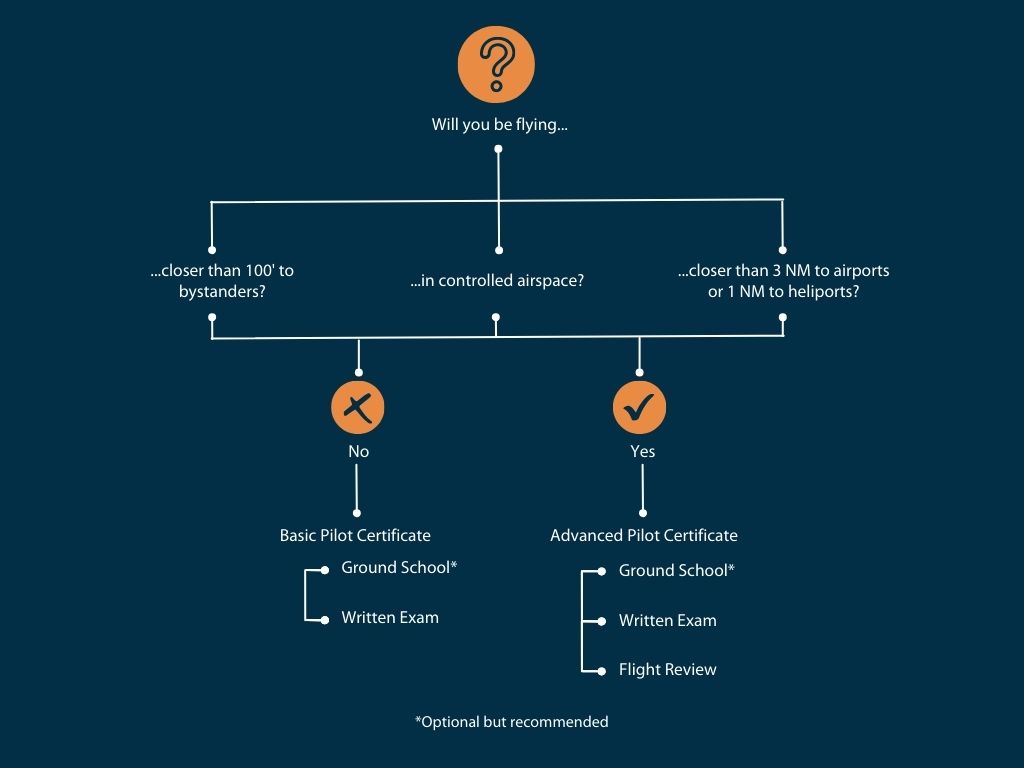Drone License VS. Certification
Did you know that Canada doesn’t have licenses for drone pilots? Instead they’re called “certifications” and not to be a pedant, but there is a difference. It just means additional credentials like ratings can’t be added and there’s not necessarily an international standard the requirements adhere to. In terms of pilot use though, it’s basically the same idea.
There are are currently two types of drone pilot certifications in Canada – basic and advanced. We’re anticipating a new drone pilot certificate in 2025 called a Level 1 Complex (L1C) that will enable routine operations beyond visual line of sight, but more on that later.
Drone flights in Canada are regulated based on risk. Risk depends on the weight of your drone and where you intend to operate it. If your drone weighs above 250g, you require either a basic or advanced pilot certificate to fly it. Which one of those you need depends on the flexibility you want in where you’re allowed to fly. Check out the diagram below!

Once you know which certificate makes the most sense for the flights you want to do, you can start learning. Ground school is a great way to get started and will allow you to get the most out of your drone!
After learning the ins and outs of the systems and rules, you can take full advantage of what they allow you to do – which may be more than you think! We have fantastic (if we say so ourselves) training programs to get you started on the right foot for both basic and advanced operations!
Next up is the written exam. For this you’ll need an account on Transport Canada’s Drone Management Portal.
Basic certification exam cost is ~$10, is 35 multiple choice questions and you have 90 minutes to complete it. This gives you plenty of time to look up answers and learn as you go.
The advanced exam is also ~$10, 50 multiple choice questions and you only have 60 minutes to complete it. You’ll want to be well prepared going into this exam.
Following completion of your written, you’ll have a basic certificate, regardless of which exam you wrote. Wait, what? Yep, you read that right. Next step for advanced pilots is to complete your flight review which will “upgrade” your certificate to advanced.
Flight reviews are an in-person assessment where a flight reviewer will review your standard operating procedures, have you conduct some basic flight exercises, and confirm your knowledge to ensure you understand the full extent of your advanced certificate privileges.
Upon becoming certified, you’ll need to complete a recency exercise every 24 months. You have a few options for this including Transport Canada’s free self-paced study program or an online seminar.

